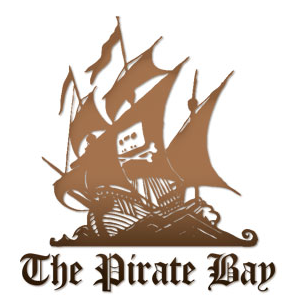Weekly News Roundup (14 December 2014)
Welcome to what is probably the penultimate “proper” WNR for 2014, with the WNR scheduled for December 28 likely to be a very short affair (given it’s that time of the year and everything). Where has 2014 gone? It seems like it was only yesterday that we were talking about The Pirate Bay’s journey to find a new home and HEVC’s growing stature as the industry codec for the (immediate) future. I guess things haven’t really changed that much in a year!
Onto this week’s all copyright, all the time, WNR …
![]()
The Pirate Bay ship has been sunk … or at the very least, it has disappeared into a cloud of smoke, fate unknown. With the site still down at the time of writing, this one looks like to be one of the biggest TPB outages in history. All of this is because of a Swedish police raid on the nuclear bunker style data center that TPB (and other sites, including EZTV and a few BitTorrent trackers) used – the bunker may be nuclear bomb proof, but it wasn’t police proof, it appears.
Still hard to find any definitive information on just what happened, but it appears that TPB’s load balancers were taken offline in the raid, while the actual servers that hosts the site and files are “in the cloud” and so, I guess, still there somewhere (without the load balancers to direct users to where the servers are). For all the talk of TPB being “raid proof”, the load balancers still appears to be a single point of failure for the site, although I guess there are solutions for this as well.
——
I found the headline for this article, “Sony Pictures mad at Netflix’s failure to block overseas VPN users”, particularly ironic this week given that pretty much everyone, from President Obama to Kevin Hart to Angelina Jolie will have been pretty mad at Sony Pictures this week (for those not keeping track, leaked emails revealed very insensitive to downright racist remarks made by executives at Sony).
Just as damaging may be the leaked emails explaining the MPAA’s strategy in dealing with piracy, with several key, previously unknown details being revealed. You can read this article for a brief overview of what’s in the leak, but it appears that the MPAA will be moving ahead with litigation in several countries in a bid to stop what they feel is the top piracy priority, cyberlocker and video streaming sites.
The introduction of a “site scoring service” was also interesting, and may tie in neatly with Disney’s patent for a new piracy-free search engine. The service will rank sites based on “trustworthiness”, with I suppose official and legal services being more trustworthy than say the Pirate Bay (if and when it gets back online). Support services such as payment processors and domain name registrars can use the service to identify and boot suspected piracy sites. So in reality, this “site scoring service” may just be a fancy name for an Internet blacklist.
One of the priority targets is piracy related apps, which may or may not have anything to do with this story. Google has pulled piracy related apps from the Play Store, and I wouldn’t be surprised if this is happening as part of a bigger plan, the very plan that was leaked.
This kind of cooperation between the MPAA and Google may be a thing of the past though, as Google’s recent algorithm changes, which have proved quite effective at taking down piracy related sites, were met with a ‘snarky’ response from the MPAA. Against, the Sony Pictures leaked emails proved to be very insightful, as Google’s intentions of doing something helpful for the MPAA was met with disdain and distrust, which may have caused the relationship between Hollywood and the search engine to completely break down. Nice one MPAA!
——
All of this week’s stories so far have been about stopping downloads, pirates, piracy sites, blah blah blah … but does it all really matter? According to a survey released by Australian consumer group CHOICE, stopping pirates may not be the most important thing ever, and kicking them off the Internet may be the last thing you want to do. This is because, according to the study, people who admit to regularly pirating spend more money than people who say they never pirate. Similar results have been found in the past, in other regions, and it also makes sense if you think about it. It’s because people who like to consume digital content will do so both legally and illegally. People who don’t pirate may also be the same people who just don’t want the content on offer, whether it’s a movie at a cinema or the same movie on BitTorrent.
The interesting question for me is how these so called “regular pirates” decide what to buy and what to download (illegally). I think this is where value, availability, quality, ease of use and things like DRM come in. People ARE spending money, and it’s important to find out why they’re doing so. Of course, once funds are exhausted (consumers do not have unlimited funds, take note RIAA/MPAA), there’s only one real option left. Now whether content owners want people to have this option or not, or to simply stop consuming when they run out of money, that’s sort of where the debate is at right now – either way, they’re not going to get a cent more, but allowing people to still download may have promotional value beyond a simple dollar return.
——
And that’s all we have time for this week. Actually, I have a lot of time, but I also have a lot of stuff in my Netflix queue to catch up on. Like, A LOT of stuff. See you next week!


